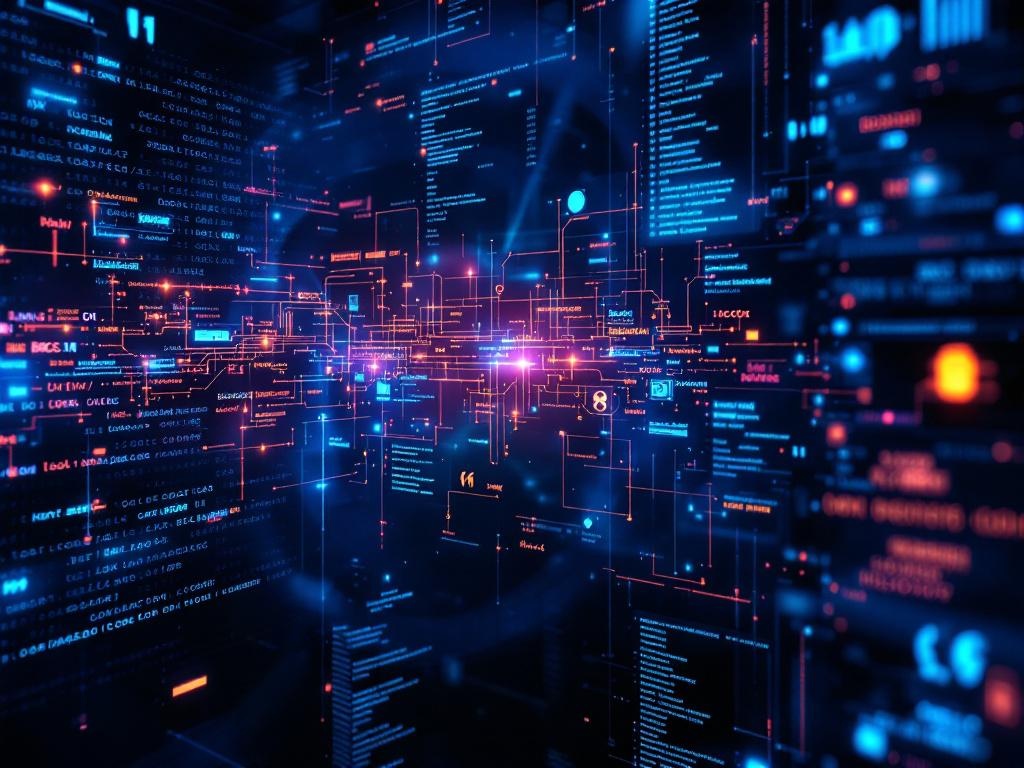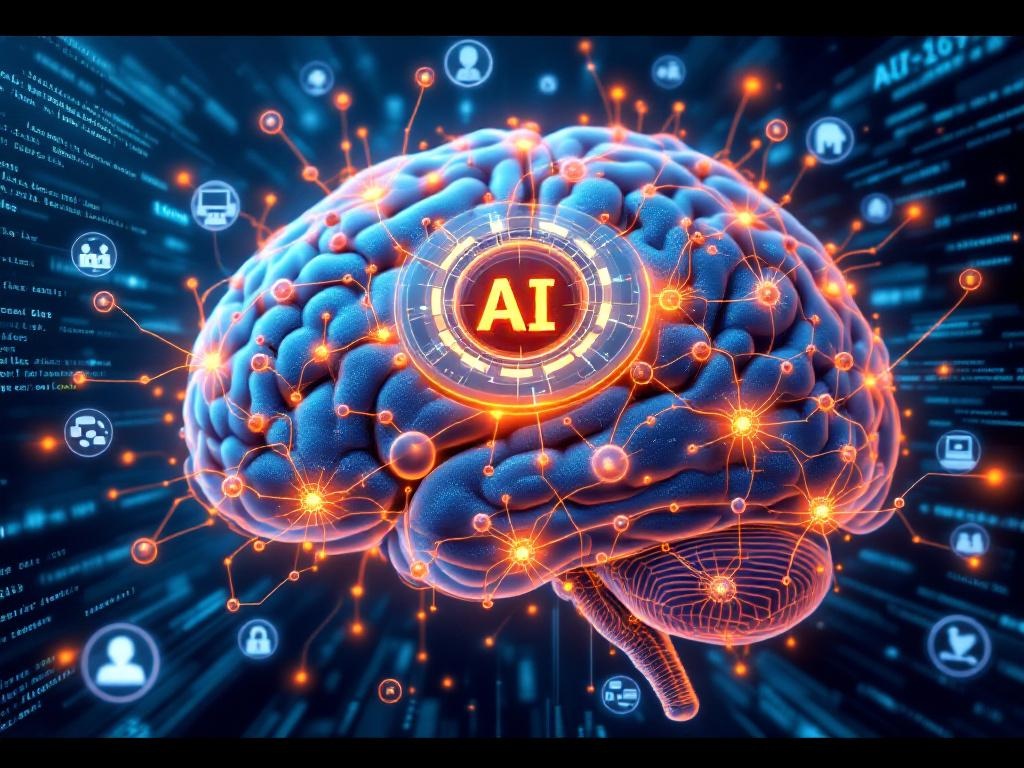Quantum-enhanced blockchain AI networks are revolutionizing healthcare by offering extraordinary improvements in decentralized medical diagnosis. These advances leverage quantum key distribution (QKD) for unprecedented data security, integrating with blockchain and artificial intelligence (AI) to propel operational efficiency and diagnostic precision to new heights.
Quantum Key Distribution: Securing Health Data
In the realm of modern healthcare, ensuring the protection of sensitive data while sharing it across decentralized systems presents a complex challenge. This is where Quantum Key Distribution (QKD) emerges as a groundbreaking solution, particularly within healthcare applications. By harnessing the principles of quantum mechanics, QKD offers a unique approach to secure data communication, making it virtually impervious to the threats posed by even the most advanced quantum computing technologies. The integration of QKD in healthcare is a focal area of interest, primarily due to its potential to safeguard medical privacy and secure data sharing with unmatched efficacy.
The significance of QKD in healthcare cannot be overstated, especially when considering the potential vulnerabilities in current encryption methods that could be exploited by quantum computers. Advanced quantum computing possesses the capability to break classical encryption algorithms, thereby posing a serious risk to the security of sensitive healthcare data. This vulnerability underscores the necessity for a quantum-secure method of encryption, which QKD provides by utilizing the properties of quantum mechanics to secure data transmission. In this context, a recent study has proposed a medical privacy protection and sharing scheme based on quantum keys integrated with blockchain technology. This scheme not only fortifies the security of data exchanged across decentralized medical systems but also ensures the privacy of patients’ sensitive information is maintained.
Furthermore, the integration of AI and blockchain in smart healthcare systems has shown considerable promise in enhancing diagnostic accuracy and operational efficiency. However, the addition of quantum-enhanced technologies into this mix accelerates these benefits exponentially. By employing quantum-enhanced cryptographic operations and optimizing data throughput, the convergence of blockchain and AI technologies in healthcare achieves an unprecedented level of efficiency and security. This integration significantly empowers AI agents, enabling more sophisticated real-time monitoring, automated incident response, and predictive analytics in medical imaging cybersecurity. These capabilities are especially critical in minimizing downtime and fortifying the networks against increasingly sophisticated cyber threats.
The exceptional efficiency gains, sometimes quantified as high as 500%, are largely attributed to the parallel processing capabilities of quantum computing. This quantum advantage allows for the rapid acceleration of AI algorithms and the optimization of blockchain consensus mechanisms. Such advancements are pivotal in reducing latency and computational overhead found in conventional decentralized medical diagnosis workflows. As a result, this quantum-enhanced blockchain AI network not only boosts efficiency but also elevates the overall performance of decentralized healthcare platforms. These platforms benefit from enhanced data security, faster AI-driven diagnostics, and robust, privacy-preserving data sharing across a distributed network of healthcare providers.
However, the practical deployment of QKD in healthcare confronts several challenges, ranging from the high cost of quantum key distribution infrastructure to the complexity of integrating QKD with existing healthcare IT systems. Despite these challenges, ongoing innovations in quantum communication and cryptographic algorithms are steadily overcoming these hurdles. Researchers and technologists are focused on developing more cost-effective, scalable, and interoperable solutions to ensure that the benefits of quantum-enhanced blockchain AI networks can be fully realized within the healthcare sector.
In summary, QKD represents a revolutionary approach to securing health data within decentralized medical systems. By effectively countering the potential threats posed by quantum computing and enhancing the secure sharing of medical information, QKD plays a crucial role in safeguarding patient privacy in the digital age. Its integration with blockchain and AI technologies marks a significant leap forward, promising a future where decentralized healthcare networks can operate with enhanced efficiency, security, and reliability.
AI and Blockchain: Smarter Healthcare Decisions
Building on the secure foundations laid by quantum key distribution (QKD) in healthcare, as discussed in the preceding chapter, the integration of Artificial Intelligence (AI) and blockchain technology is propelling the healthcare sector towards a more efficient and accurate system of medical diagnosis and data management. This synergy, by leveraging the unique strengths of each technology, is enabling smarter healthcare decisions with an unprecedented level of security and efficiency. The remarkable efficiency boost of up to 500% in decentralized medical diagnosis systems underscores the transformative potential of quantum-enhanced blockchain AI networks.
At the core of this transformation is the innovative use of AI and blockchain in smart healthcare systems which has shown to significantly enhance diagnostic accuracy, now reaching up to 95%. This leap in performance is largely attributable to the application of machine learning models that efficiently process and analyze vast amounts of heterogeneous data collected from decentralized sources. With quantum computing entering the fray, these processes are further accelerated. Quantum computing brings to the table unparalleled parallel processing capabilities that cut down on latency and the computational overhead, thus speeding up blockchain consensus mechanisms and the execution of complex AI algorithms.
Moreover, in the realm of clinical decision-making, the integration of AI with blockchain technology facilitates automated analytics of healthcare data in a secure and transparent manner. This marriage of AI’s analytical power with blockchain’s tamper-proof record-keeping not only ensures integrity and confidentiality in data management but also significantly improves the accuracy and speed of clinical decisions. With the advent of federated learning, AI models can now be trained on diverse datasets distributed across different locations without needing to move the data, thereby preserving privacy and adhering to regulatory compliance. This is particularly beneficial in contexts such as remote patient monitoring, clinical trials, and pharmaceutical research, where timely and accurate data analysis can markedly accelerate diagnosis, treatment discovery, and personalization of healthcare.
Further enriching this ecosystem, AI agents combined with blockchain and quantum technologies are enhancing medical imaging cybersecurity through real-time monitoring, automated incident response, and predictive analytics. This proactive approach to cybersecurity minimizes downtime and fortifies the healthcare infrastructure against an increasingly sophisticated landscape of cyber threats. In essence, these technological innovations contribute significantly to the operational efficiency, reliability, and resilience of decentralized diagnostic networks.
An important aspect of integrating AI and blockchain in healthcare is the consideration of legal and ethical dimensions. As these technologies are deployed for automated data analytics and healthcare data management, issues such as data privacy, patient consent, and the security of sensitive information come to the forefront. The adoption of quantum key-based privacy protection mechanisms, as integrated with blockchain technology, addresses these concerns by providing a secure method for data sharing and privacy preservation in decentralized medical systems. Nonetheless, ongoing efforts are aimed at navigating the complex legal landscape and ensuring these innovative health technologies align with ethical standards, making the systems not just technologically advanced but also ethically sound and legally compliant.
In conclusion, the integration of AI and blockchain in healthcare, enhanced by quantum computing, is revolutionizing the way medical data is processed, shared, and utilized for clinical decision-making. By dramatically boosting efficiency, ensuring robust data security, and enhancing diagnostic accuracy, this innovative amalgamation holds the promise of reshaping the future of healthcare, making decentralized medical diagnosis systems more efficient, secure, and scalable. As we advance towards quantum-enhanced blockchain medical systems, the next chapter will delve into the specific role these systems play in the healthcare industry, highlighting their impact on patient data sharing, regulatory compliance, and the integration of AI tools for improved clinical outcomes.
Quantum-Enhanced Blockchain Systems in Medicine
The evolution of healthcare through technology has seen several pivotal shifts, but none quite as transformative as the integration of quantum-enhanced blockchain medical systems. These advanced platforms have not only redefined patient data sharing but have significantly raised the bar for compliance with stringent regulations such as the Health Insurance Portability and Accountability Act (HIPAA), all the while leveraging Artificial Intelligence (AI) tools for superior clinical decision-making. The synergetic combination of quantum computing, blockchain technology, and AI has ushered in a new era of efficiency, security, and accuracy in medical diagnoses—a leap forward that reports suggest could lead to a staggering 500% boost in decentralized medical diagnosis systems.
At the heart of this revolutionary advancement is the use of quantum key distribution (QKD) to safeguard patient data, a method that takes privacy protection in healthcare beyond the realm of classical encryption techniques. The implementation of QKD within blockchain frameworks ensures an unparalleled level of security in data sharing across distributed networks, making it virtually impervious to cyber threats. This quantum key-based privacy protection scheme is foundational to the trust and reliability instilled in modern healthcare information systems, ensuring that sensitive patient data remains confidential and secure.
The integration of AI and blockchain technology in smart healthcare systems has been pivotal in improving diagnostic accuracy and operational efficiency. Machine learning models, when applied to vast and diverse datasets available in decentralized systems, have demonstrated diagnostic accuracies reaching up to 95%. These models thrive on the rich, nuanced data provided by blockchain systems, encompassing patient records, imaging data, and real-time health monitoring streams. The quantum enhancement of these platforms further accelerates cryptographic operations and data throughput, optimizing the performance of AI algorithms and making significant strides in real-time patient monitoring, automated incident detection, and predictive analytics in medical imaging cybersecurity.
Quantum computing brings to the table its inherent parallel processing capabilities, which turbocharge the AI algorithms and blockchain consensus mechanisms at the core of these healthcare platforms. This significantly reduces latency and computational overhead in decentralized medical diagnosis workflows, directly contributing to the reported efficiency gains. In an era where speed can save lives, the ability to quickly process and analyze complex healthcare data sets in real-time stands out as a critical advantage of quantum-enhanced blockchain AI networks.
Market projections for quantum-enhanced blockchain systems in healthcare are bullish, reflecting the anticipated broad adoption and growth of these platforms. Investors and healthcare leaders alike recognize the potential for these systems to significantly lower operational costs while improving patient outcomes and satisfaction levels. The integration of quantum computing with blockchain and AI is not just a theoretical projection but is being actively realized with platforms like Quant Blockchain leading the charge. These systems are setting new standards for data sharing, privacy, and compliance with healthcare regulations, while simultaneously offering advanced tools for clinical decision-making.
The profound impact of quantum-enhanced blockchain AI networks on healthcare is unmistakable. By bolstering data security, enhancing diagnostic accuracy, and ensuring compliance with healthcare regulations, these platforms are defining the future of medicine. The efficiency gains, projected market growth, and the continued integration of AI tools underscore the vital role these systems play in the healthcare industry. As we move forward, the continuous refinement and adoption of these technologies will undoubtedly shape the landscape of decentralized medical diagnosis, offering promising prospects for global healthcare improvements.
Operational Efficiency and Data Throughput Gains
The revolutionary integration of quantum computing, AI, and blockchain technologies in healthcare has catalyzed remarkable operational efficiency gains and enhancements in data throughput, critically advancing decentralized medical diagnosis systems. This triad synergistically amplifies the strengths of each technology, resulting in unprecedented improvements in the speed, security, and accuracy of data processing and analysis in healthcare.
Quantum computing introduces parallel processing capabilities that dramatically accelerate AI algorithms and blockchain’s consensus mechanisms. The essence of quantum-enhanced blockchain AI networks lies in their ability to process and analyze vast amounts of data at speeds unattainable by classical computing systems. This acceleration is critical for AI-driven diagnostics, where the ability to quickly process and interpret large datasets can mean the difference between timely intervention and missed opportunities.
One key area where these efficiency gains are realized in practice is in the realm of drug discovery and development through quantum simulations. Traditional drug design processes are notoriously time-consuming and costly, often taking over a decade and billions of dollars. Quantum computing, however, can simulate molecular interactions at an unprecedented scale and speed, significantly reducing the time and resources required for drug discovery. When integrated with AI algorithms capable of predicting how drugs interact with biological systems, these simulations can streamline the development of new medications, making the process not only faster but also more cost-effective.
Additionally, quantum-enhanced blockchain AI networks optimize resource allocation across healthcare systems, ensuring that computational and medical resources are utilized in the most efficient manner. This optimization includes the intelligent scheduling of medical diagnostics, patient data processing, and even the allocation of medical personnel based on predictive analytics. The integration of quantum keys further fortifies these systems by bolstering encryption methods beyond conventional capabilities, thereby ensuring the utmost security and privacy of sensitive medical data as it is shared across decentralized networks. The enhanced data security protocols, grounded in quantum key distribution (QKD), ensure that patient data remains confidential and tamper-proof, addressing one of the paramount concerns in healthcare IT systems.
The quantum key-based medical privacy protection and sharing scheme mentioned in recent studies exemplifies how quantum computing not only enhances security but also enables more efficient ways of managing and sharing patient data. This scheme allows for secure, privacy-preserving sharing of data across different entities within the healthcare landscape, from hospitals to research institutions, without compromising data integrity or patient confidentiality.
Moreover, the advent of AI agents operating within these quantum-enhanced blockchain frameworks facilitates real-time monitoring and automated incident responses, significantly reducing downtime and enhancing the resilience of decentralized diagnostic networks against cyber threats. The synergy of these technologies ensures that healthcare providers can offer consistent, uninterrupted care, backed by the most secure and efficient diagnostic networks available.
In practice, the leap in operational efficiency and data throughput is most conspicuously reflected in enhanced diagnostic accuracy and speed. Healthcare systems leveraging quantum-enhanced blockchain AI networks have reported diagnostic accuracies of up to 95%, a testament to the power of combining quantum computing’s parallel processing capabilities with AI’s analytical prowess and blockchain’s immutable record-keeping.
This chapter, nestled between discussions on the role of quantum-enhanced blockchain medical systems and the prospective landscape of decentralized healthcare, underscores the practical realization of efficiency gains through the integration of quantum computing with AI and blockchain technologies. As we venture into the future of decentralized healthcare systems, the foundational architecture provided by quantum-enhanced blockchain AI networks will undoubtedly play a pivotal role in shaping efficient, secure, and patient-centric care.
The Future of Decentralized Healthcare Systems
The future landscape of decentralized healthcare systems, profoundly influenced by the synergistic integration of quantum computing, blockchain technology, and AI, promises a radical overhaul of patient care and data security. This triad potentiates not just incremental improvements but seismic shifts in how healthcare data are processed, shared, and utilized for diagnostic purposes, envisioning a paradigm where efficiency gains upwards of 500% become the norm rather than the exception. The advent of quantum-enhanced blockchain AI networks ushers in an era where these advanced technologies converge to redefine the expectations from and capabilities of medical diagnosis and privacy protection schemes.
At the heart of this transformation is the promise of unparalleled data security, ensured by quantum key distribution (QKD) mechanisms. This quantum approach to encryption elevates the security of sensitive healthcare data to levels beyond the reach of conventional methods, addressing a vital concern in the sharing and processing of medical information. The resultant quantum-enhanced blockchain frameworks not only assure the integrity and confidentiality of patient data but also enable a decentralized architecture where this data is accessible across geographical and institutional boundaries without compromising privacy or security. This capability is paramount in real-time medical diagnosis scenarios, where timely access to medical records and diagnostic imaging across platforms can significantly impact patient outcomes.
Furthermore, the incorporation of AI into these quantum-blockchain networks transforms data analytics in healthcare. By leveraging machine learning algorithms capable of parsing vast and heterogenous datasets, these systems can deliver diagnostic insights with a level of precision and speed previously unattainable. The quantum acceleration of AI processes, specifically in the analysis of complex medical images and predictive analytics for patient monitoring, suggests a future where diagnoses are not only more accurate but also substantially more timely. This leap in diagnostic efficiency could herald a new standard of patient care, where early detection and personalized treatment plans become far more achievable.
Yet, the journey towards this future state is not without its challenges. The infrastructure necessary to support such advanced systems requires significant transformation, particularly in terms of computational resources and the development of novel algorithms capable of operating within quantum-enhanced blockchain frameworks. Ensuring the interoperability of these technologies across the diverse landscape of global healthcare systems poses another substantial hurdle, necessitating widespread standards and protocols that govern data exchange and system integration. Furthermore, addressing the digital divide—ensuring equitable access to this next-generation healthcare across various socio-economic groups—remains a pressing concern that could otherwise exacerbate existing disparities in healthcare quality and access.
Despite these challenges, the potential advancements in patient care, data security, and efficiency gains herald a future of decentralized healthcare systems that are more resilient, accessible, and effective. As quantum computing continues to evolve, its integration with AI and blockchain in healthcare promises not just improvements in how medical data are handled and diagnoses are performed but a comprehensive overhaul of healthcare delivery models. Patients stand to benefit from more personalized and preventive healthcare strategies, underpinned by secure, efficient, and universally accessible medical data networks. This vision of decentralized, quantum-enhanced healthcare systems points towards a future where the seamless flow of secure, actionable healthcare information becomes the cornerstone of patient care, potentially transforming the global healthcare landscape.
Conclusions
Quantum-enhanced blockchain AI networks present a groundbreaking shift in healthcare, delivering a fivefold efficiency enhancement in decentralized diagnosis. By fortifying data security, expediting AI-based diagnostics, and enabling seamless data sharing, they mark a new epoch in scalable and secure healthcare delivery.



